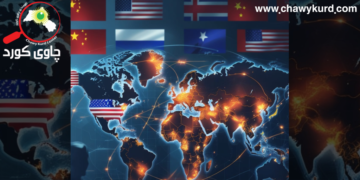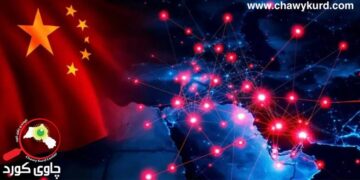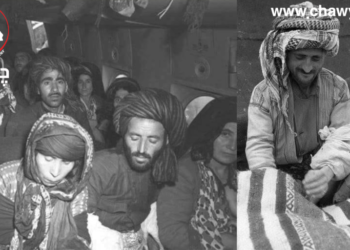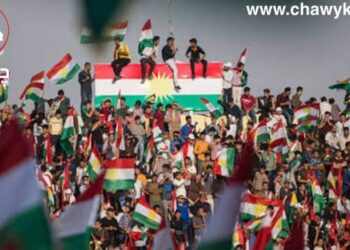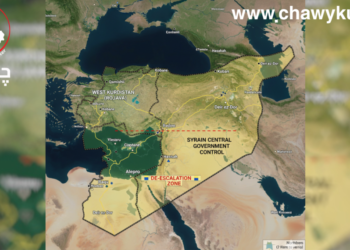(On the occasion of the anniversary of the execution of Peshawa and his comrades)
March 30, 1947 is sore day in the history of our people in East Kurdistan, is also a proof of sovereignty, recognition and self-identification. The day of the fall and martyrdom of the Kurdistan President, Peshawa and his comrades in the square of Mahabad, although a bitter and sad scene, but also an inspiring and immortal prospect of the legitimacy and justification of our people’s rights and struggle justified in the ancients. There is no doubt that the history of our people’s struggle has been a history of blood and sacrifice. Contrary to some views, i believe that this has created a collective depression in our memory. There is no nation or individual who has national feelings and human compassion and reads these bitter scenes outside of pain and suffering, but it is these national feelings that motivate us to turn blood into a smile. In this piece of writing I will quickly dive into the reasons for the fall of the Kurdistan Republic.
Kurdistan Republic; Reasons for shine and fall!
77 years ago, the Kurdistan Republic collapsed in Mahabad due to internal support; foreign treachery and dictatorship of Iranian state, Qazi Mohammad Peshawa and his comrades surrendered to the Iranian forces and contrary to the promise made by the representatives of the state, the late Peshawar, Sadri Qazi and Saif Qazi were executed in the square of Mahabad. Of course, one of the reasons for the failure of the republic and the sacrifices of the judge and friends of the lack of unity and spirit of unity was the betrayal of some Khans and tribal chiefs. I told them that after the breakdown of Azerbaijan, own workers and many of his officials had fled to Russia. The judge came to Hamamyan area and surrendered unconditionally to the state.
This may be just one of the reasons for the fall of the republic. If the social structure and national consciousness among the khans and nobles had been strong enough to act within the framework of national thought, then these nobles would not have considered the disappearance of Qazi as a sign of their liberation. Obviously, this is one side of the republic and we must learn lessons from it. The other side of the republic is the presence of a national will in the south of the country under the flag of the republic.
It is the readiness of the late Mullah Mustafa Barzani and Barzani’s forces to support this liberated part of Kurdistan within the framework of the republic of Kurdistan. Let us look at the historical evidence of Barzani’s presence in Mahabad and the mixture of the national spirit of the south and east in the Kurdistan newspaper, the official organ of the Kurdistan Democratic Party and the Kurdistan Republic.
Kurdistan newspaper in its issues 26 and 27-Monday 27 February and Monday 5 Newroz, on 18 and 25 March 1946, reported the arrival of Mullah Mustafa in the section “Local News” as follows:
Mullah Mustafa Barzani, the leader of the Kurds of Barzan, arrived in Mahabad on 28/2/1946 at 5 pm. When he arrived in the gardens, he was welcomed by the members of the Central Committee. When Mullah Mustafa crossed the river, he got off with the respect of the members of the Central Committee, who accelerated their steps. They met by the river. Dear brother; Sadiqi Haidari held a welcoming ceremony and introduced all the members of the committee to Mullah Mustafa. He shook hands with them all and they walked to the central office of the Democratic Party and entered the hall of the Cultural Council.
At 6 pm, Qazi Mohammed, the Kurdistan leader, visited the central office and met with Mullah Mustafa. At that time, Mohammad Effendi read a letter to Qazi Mohammad that was actually the heartfelt words of Mullah Mustafa and the Kurds of Barzan who had suffered much blindness in the cause of their nation and country. In response, Qazi Mohammad gave them hope for the Democratic Party and the Kurdistan Republic.
Then they took Qazi Mohammad to his office and Mullah Mustafa came to them and they talked for two hours.
Mullah Mustafa is a politician and leader of the Kurds of Barzan. He has drawn a lot of blindness on the path of Kurdistan’s independence. The enemies of Kurdistan have displaced him and his entire tribe and family for the crime of liberation. This man, besides being a great commander, is a very knowledgeable, cautious, intelligent, faithful and patriotic man, nearly forty-five years old.













